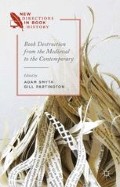Abstract
That mysterious paper currency which circulates in London when the wind blows, gyrated here and there and everywhere. Whence can it come, whither can it go? It hangs on every bush, flutters in every tree, is caught flying by the electric wires, haunts every enclosure, drinks at every pump, cowers at every grating, shudders upon every plot of grass, seeks rest in vain behind the legions of iron rails. In Paris, where nothing is wasted, costly and luxurious city though it be, but where wonderful human ants creep out of holes and pick up every scrap, there is no such thing. There, it blows nothing but dust.1
Access this chapter
Tax calculation will be finalised at checkout
Purchases are for personal use only
Preview
Unable to display preview. Download preview PDF.
Notes
Karen Chase and Michael Levenson, ‘Green Dickens’, in Eileen Gillooly and Deirdre David (eds), Contemporary Dickens (Columbus: Ohio State University Press, 2009), pp. 131–51
Gavin Edwards, ‘Dickens, Illiteracy, and “Writin’ Large”’, English 61 (2012): 27–49.
Catherine Gallagher, The Body Economic: Life, Death, and Sensation in Political Economy and the Victorian Novel (Princeton and Oxford: Princeton University Press, 2006), pp. 111–12.
See Katherine Inglis, ‘Thomas Carlyle’s Laystall and Charles Dickens’s Paper-Mill’, Carlyle Studies Annual 27 (2011): 159–76
Leah Price, How to Do Things with Books in Victorian Britain (Princeton: Princeton University Press, 2012), p. 219.
R. H. Home, ‘Dust; Or, Ugliness Redeemed’, Household Words, vol. I (13 July 1850): 379–84
John Capper, ‘Waste’, Household Words, vol. IX, no. 220 (10 June 1854): 390–3
Robert L. Patten, Charles Dickens and his Publishers (Oxford: Clarendon Press, 1978), p. 307.
Maurice S. Lee, ‘Evidence, Coincidence, and Superabundant Information’, Victorian Studies 54(1) (2011): 87–94
Lewis Roberts, ‘Trafficking in Literary Authority: Mudie’s Select Library and the Commodification of the Victorian Novel’, Victorian Literature and Culture 34(1) (2006): 1–25.
Henry Mayhew, London Labour and the London Poor, ed. Robert Douglas-Fairhurst (Oxford: Oxford University Press, 2012), p. 173.
Howard W. Fulweiler, ‘“A Dismal Swamp”: Darwin, Design and Evolution in Our Mutual Friend’, Nineteenth-Century Literature 49(1) (1994): 50–74.
Charles Darwin, The Origin of Species, ed. J. W. Burrow (Harmondsworth: Penguin, 1985), p. 435.
Carolyn Steedman, Dust (Manchester: Manchester University Press, 2001), p. 164.
Sally Ledger and Roger Luckhurst (eds), The Finde Siècle: A Reader in Cultural History, c.1880–1900 (Oxford: Oxford University Press, 2000), p. 1.
Author information
Authors and Affiliations
Editor information
Editors and Affiliations
Copyright information
© 2014 Heather Tilley
About this chapter
Cite this chapter
Tilley, H. (2014). Waste Matters: Charles Dickens’s Our Mutual Friend and Nineteenth-Century Book Recycling. In: Partington, G., Smyth, A. (eds) Book Destruction from the Medieval to the Contemporary. New Directions in Book History. Palgrave Macmillan, London. https://doi.org/10.1057/9781137367662_9
Download citation
DOI: https://doi.org/10.1057/9781137367662_9
Publisher Name: Palgrave Macmillan, London
Print ISBN: 978-1-349-47455-4
Online ISBN: 978-1-137-36766-2
eBook Packages: Palgrave Literature CollectionLiterature, Cultural and Media Studies (R0)

